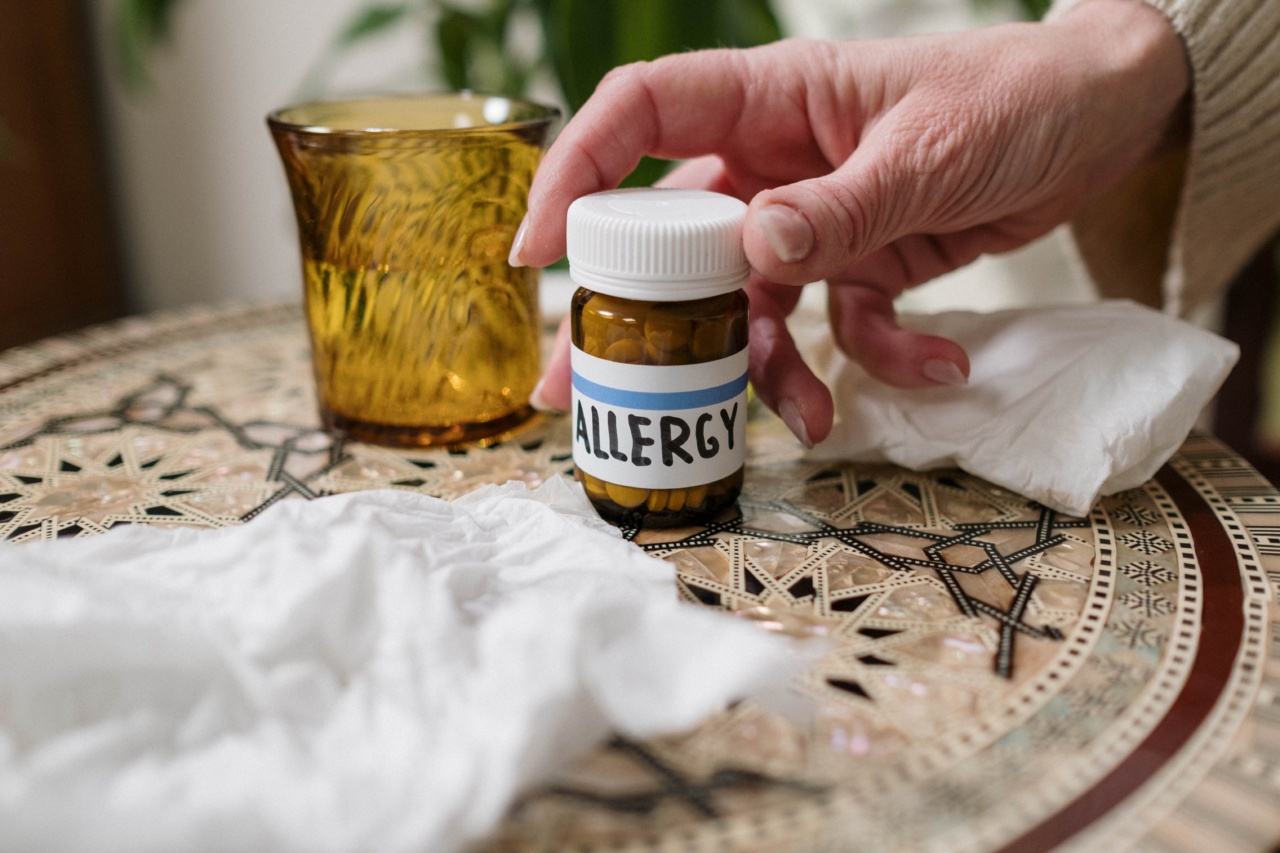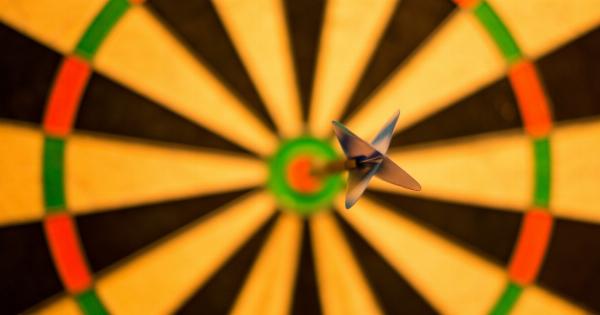Allergic rhinitis, also known as hay fever, is a common allergic condition that affects the nasal passages. It occurs when the immune system overreacts to certain allergens, causing inflammation and irritation in the nose.
This condition can have a significant impact on a person’s quality of life, as it often leads to troublesome symptoms that can be both physically and emotionally distressing.
Common Symptoms
When an individual with allergic rhinitis comes into contact with an allergen, their immune system releases chemicals that cause allergic symptoms. The most common symptoms of allergic rhinitis include:.
- Sneezing: Sneezing is a reflex response initiated by irritation or tickling in the nasal lining. It is a common symptom of allergic rhinitis.
- Runny or congested nose: Allergic rhinitis can cause a runny or congested nose, also known as nasal congestion. This occurs due to inflammation, which leads to the production of excess mucus.
- Itchy nose, eyes, or throat: Many individuals with allergic rhinitis experience itchiness. This can be particularly bothersome, as the constant need to scratch can further irritate the already inflamed nasal passages.
- Watery eyes: Irritation of the nasal passages can also affect the eyes, causing them to become watery or itchy.
- Coughing: Some individuals with allergic rhinitis may develop a cough as a result of post-nasal drip. This occurs when excessive mucus produced in the nasal passages drips down the back of the throat.
- Loss of smell: In some cases, allergic rhinitis can lead to a temporary loss of smell, known as anosmia. This can further impact a person’s quality of life, as it affects the ability to enjoy food and detect potential dangers in the environment.
Diagnosis of Allergic Rhinitis
If you suspect that you have allergic rhinitis, it is important to seek a proper diagnosis from a healthcare professional. The diagnosis of allergic rhinitis usually involves the following steps:.
Medical History
Your doctor will begin by taking a detailed medical history, focusing on your symptoms, their duration, and any triggers that seem to worsen them.
They may also inquire about your family history of allergic conditions, as there is a genetic component to allergic rhinitis.
Physical Examination
Next, your doctor will perform a physical examination, focusing on your nose, throat, and eyes. They will look for signs of redness, swelling, or discharge that may indicate allergic rhinitis.
They may also use a special instrument called an otoscope to examine your ear canals, as allergic rhinitis can sometimes lead to fluid buildup in the middle ear.
Allergy Testing
To confirm the diagnosis of allergic rhinitis and identify the specific allergens responsible for your symptoms, your doctor may recommend allergy testing. There are two main types of allergy tests:.
Skin Prick Test
In a skin prick test, small amounts of various allergens, such as dust mites, pollen, pet dander, or mold, are applied to your skin using a tiny needle. The skin is lightly pricked to allow the allergen to enter the top layer of the skin.
If you are allergic to a particular allergen, you will develop a small raised bump or hive at the site of the prick.
Blood Test
If a skin prick test is not feasible or inconclusive, your doctor may recommend a blood test instead. This blood test, known as a specific IgE test, measures the levels of specific antibodies (IgE) in your blood.
Elevated levels of IgE antibodies to certain allergens can indicate an allergic reaction.
Treatment Options
While there is no cure for allergic rhinitis, there are several treatment options available to help manage symptoms effectively.
The choice of treatment will depend on the severity of your symptoms, the impact on your quality of life, and your individual preferences. The main treatment options for allergic rhinitis include:.
1. Avoidance of Allergens
Avoidance of allergens is the first step in managing allergic rhinitis. Identifying the specific allergens that trigger your symptoms and taking measures to reduce your exposure to them can significantly alleviate your symptoms.
For example, if you are allergic to pollen, you may need to stay indoors during periods of high pollination, keep windows closed, and use air purifiers in your home.
2. Medications
If avoidance measures alone are not sufficient to control your symptoms, your doctor may recommend medications to help alleviate your symptoms and prevent the recurrence of allergic reactions.
The medications commonly used in the treatment of allergic rhinitis include:.
Antihistamines
Antihistamines are commonly used to relieve symptoms such as sneezing, itching, and a runny nose. They work by blocking the effects of histamine, a chemical released during an allergic reaction.
Nasal Corticosteroids
Nasal corticosteroids are anti-inflammatory medications that can help reduce nasal congestion, inflammation, and mucus production.
They are available in the form of nasal sprays and are highly effective in controlling moderate to severe allergic rhinitis symptoms.
Decongestants
Decongestants are medications that constrict blood vessels in the nasal passages, reducing nasal congestion. They are available as nasal sprays, oral tablets, or liquids.
However, decongestant nasal sprays should not be used for more than a few consecutive days to avoid rebound congestion.
Immunotherapy
Immunotherapy, also known as allergy shots, is a long-term treatment option for allergic rhinitis. It involves regular injections of small amounts of the allergen to which you are allergic.
Over time, this helps desensitize your immune system, reducing the severity of allergic reactions. Immunotherapy is usually recommended for individuals with severe allergic rhinitis or those who do not respond well to other treatments.
Nasal Rinses
Nasal rinses, using a saline solution, can help flush out irritants and thin excess mucus, providing temporary relief from congestion and post-nasal drip. They can be performed using a squeeze bottle, a neti pot, or a nasal irrigation system.
Conclusion
Allergic rhinitis can significantly impact a person’s quality of life, but with proper diagnosis and treatment, its symptoms can be effectively managed. If you suspect that you have allergic rhinitis, it is essential to seek medical advice.
Your healthcare professional can help identify the specific allergens responsible for your symptoms and recommend appropriate treatment options to alleviate and control your allergic rhinitis symptoms.



























